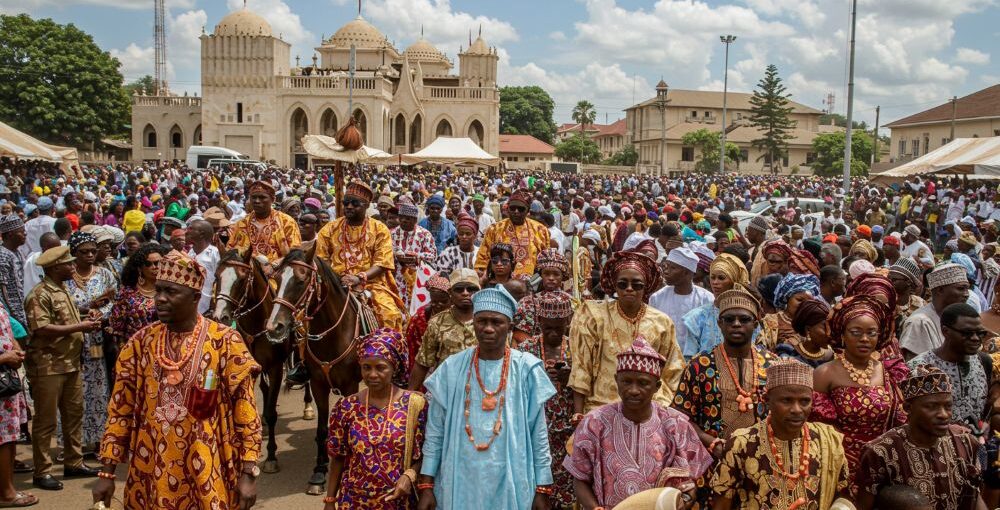Introduction: A Festival Where Royalty Meets Spirituality
Every year, the ancient city of Ijebu-Ode in Ogun State comes alive in a burst of color, regality, and reverence as the Ojúde Ọba Festival takes center stage. What began as a post-Eid gathering of Ijebu Muslim converts in the 19th century has transformed into one of Nigeria’s most iconic cultural celebrations—an event that not only honors the Awujale of Ijebuland but also showcases the enduring legacy of Yoruba heritage and Islamic identity.
Historical Origins of Ojúde Ọba
The Ojúde Ọba (meaning “the king’s forecourt”) was born out of gratitude. In the late 1800s, during the reign of Oba Adesumbo Tunwase, newly converted Muslim families sought royal permission to publicly celebrate Eid al-Kabir and pay homage to their king. The Awujale welcomed their request, and this act of goodwill laid the foundation for what is now a global cultural event that attracts tourists, dignitaries, and Yoruba descendants from around the world.
What Makes Ojúde Ọba Special
- 🎠 Horse-riding Baloguns (Warriors): Perhaps the most dramatic feature of the festival, these family warlords—often dressed in full traditional armor—ride beautifully adorned horses into the palace grounds to salute the Awujale. Each display is a statement of heritage, pride, and honor.
- 👨👩👧👦 Regberegbe (Age-Grade Groups): A hallmark of Ijebu society, these groups parade in colorful uniforms, each competing for elegance and choreography as they march before the king. It’s a powerful showcase of community organization and generational pride.
- 🕌 Faith Meets Culture: While rooted in Islamic thanksgiving, the festival also embodies Yoruba respect for monarchy, ancestry, and communal identity. It is one of the finest examples of cultural syncretism in Nigeria.
- 📸 Pageantry and Prestige: From vibrant textiles and beaded accessories to royal parasols and traditional drummers, Ojúde Ọba is a visual feast that celebrates the richness of Ijebu Yoruba aesthetics.
Economic and Social Impact
Beyond its cultural grandeur, the festival plays a significant economic role:
- It boosts tourism and hospitality in Ijebu-Ode.
- It encourages traditional textile production and local crafts.
- It promotes corporate sponsorship and philanthropy, as wealthy families and brands use the platform for social responsibility and visibility.
Ojúde Ọba in the 21st Century
In recent years, Ojúde Ọba has attracted international media attention, drawing filmmakers, anthropologists, photographers, and cultural researchers. The festival has become a symbol of unity, bridging old customs with modern expression and affirming the resilience of Yoruba identity in a globalized world.
With live streams, fashion influencers, and dignitaries attending from around the world, Ojúde Ọba is not just a cultural festival—it’s a living statement of pride, faith, and continuity.
Conclusion: More Than a Festival—It’s a Legacy
Ojúde Ọba is more than a colorful event. It is a living archive of Yoruba tradition, a yearly reminder that royalty, religion, and culture can harmoniously coexist. As the Awujale receives homage, so too does the spirit of a people—proud, dignified, and deeply rooted in their history.


